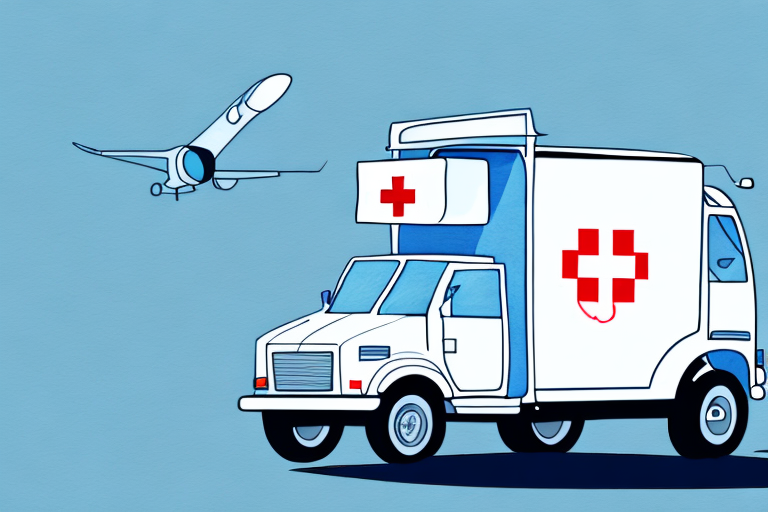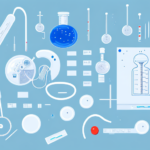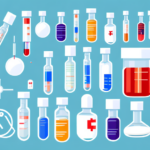The Importance of Medical Courier Services in Healthcare
Medical courier services are a vital component of the healthcare industry, ensuring the efficient and reliable transportation of sensitive medical supplies and specimens. They handle the delivery of items such as blood samples, tissue specimens, and medical equipment between hospitals, laboratories, and other medical facilities, playing a crucial role in the seamless operation of healthcare services.
According to the U.S. Bureau of Labor Statistics, the demand for couriers and messengers is projected to grow by 8% from 2018 to 2028, driven by the increasing need for timely medical deliveries. Reliable transportation of medical items is essential not only for routine healthcare operations but also for critical scenarios such as emergency medicine and surgical procedures.
Roles and Responsibilities of a Medical Courier Driver
Primary Duties
- Pick up and deliver medical supplies, samples, and equipment between healthcare facilities.
- Ensure timely and accurate deliveries to support patient care and medical research.
- Adhere to strict health and safety protocols during transportation.
Vehicle Maintenance and Organization
Medical courier drivers are responsible for maintaining the cleanliness and organization of their vehicles. This includes:
- Regularly sanitizing the vehicle's interior.
- Properly storing and securing medical items to prevent damage during transit.
- Conducting routine vehicle inspections to ensure reliability and safety.
Qualifications and Skills Required
Educational and Licensing Requirements
Most medical courier positions require a high school diploma or equivalent. Essential qualifications include:
- A valid driver’s license with a clean driving record.
- Possession of any required endorsements, such as a HazMat license, depending on the transported materials.
Key Skills
- Excellent Communication: Ability to coordinate with healthcare professionals and provide updates on delivery status.
- Organizational Skills: Efficiently manage delivery routes and schedules to ensure timely arrivals.
- Time Management: Prioritize tasks to meet strict deadlines and handle unexpected delays.
- Knowledge of Medical Protocols: Understanding of HIPAA and OSHA regulations to ensure the safe handling of medical items.
Steps to Becoming a Medical Courier Driver
1. Obtain a Valid Driver’s License
Start by securing a valid driver’s license appropriate for the vehicle you intend to operate. A clean driving record is often required.
2. Complete a Defensive Driving Course
Many employers prefer candidates who have completed defensive driving courses, which enhance safety on the road.
3. Gain Relevant Experience
While not always mandatory, prior experience in delivery services or healthcare can be advantageous. Some companies offer on-the-job training for new drivers.
4. Undergo Background Checks and Screenings
Given the sensitivity of the materials handled, medical courier drivers must pass background checks and, in some cases, drug screenings.
Challenges Faced by Medical Courier Drivers and How to Overcome Them
Common Challenges
- Traffic Congestion: Navigating through busy areas can delay deliveries.
- Inclement Weather: Adverse weather conditions can impact driving safety and delivery times.
- Strict Deadlines: Ensuring timely deliveries while managing multiple tasks.
- Exposure to Infectious Diseases: Handling biohazard materials requires strict adherence to safety protocols.
Strategies to Overcome Challenges
- Flexible Scheduling: Adjust routes and schedules to avoid peak traffic times.
- Weather Preparedness: Equip vehicles with necessary tools and stay informed about weather forecasts.
- Efficient Time Management: Prioritize deliveries and utilize technology for route optimization.
- Adherence to Safety Protocols: Consistently follow guidelines for handling and transporting medical materials.
Safety Measures for Medical Courier Drivers
Ensuring the safety of both the driver and the transported medical items is paramount. Key safety measures include:
- Personal Protective Equipment (PPE): Wearing appropriate PPE to prevent contamination and exposure.
- Proper Handling Procedures: Following established protocols for loading, unloading, and transporting medical specimens and equipment.
- Emergency Response Training: Being prepared to handle accidents or spills, including basic first aid and CPR.
Adhering to guidelines set by authorities such as the Occupational Safety and Health Administration (OSHA) ensures compliance with safety standards and reduces the risk of accidents.
Career Opportunities and Advancement
Starting as a medical courier driver offers numerous opportunities for career growth, including:
- Supervisory Roles: Moving into management positions overseeing courier teams.
- Logistics and Dispatch: Transitioning to roles focused on route planning and delivery coordination.
- Specialized Certifications: Obtaining certifications in hazardous material handling or advanced medical transport to open up higher-paying positions.
Additionally, experience in medical courier services can lead to opportunities in related fields such as healthcare supply chain management or medical equipment sales.
Salary Expectations and Job Prospects
Salary Overview
The average hourly wage for medical courier drivers in the United States ranges from $15 to $20, depending on factors such as location, experience, and additional certifications. Drivers handling hazardous materials or specialized medical equipment may earn higher wages.
Employers may also offer benefits like health insurance, retirement plans, and paid time off, enhancing the overall compensation package.
Job Outlook
The demand for medical courier drivers is expected to grow steadily. The Bureau of Labor Statistics projects an 8% growth in the couriers and messengers sector from 2018 to 2028, driven by the expanding healthcare industry and the increasing need for timely medical deliveries.
The Future of the Medical Delivery Industry
The medical delivery industry is poised for significant advancements, driven by technological innovations and the evolving needs of the healthcare sector. Key trends shaping the future include:
- Advanced GPS and Tracking Systems: Enhancing route optimization and real-time tracking for greater efficiency.
- Automation and Robotics: Integrating automated systems for sorting and handling medical supplies.
- Green Delivery Solutions: Adopting eco-friendly vehicles and sustainable practices to reduce the environmental impact.
These advancements are expected to improve delivery accuracy, reduce transit times, and increase overall reliability, further solidifying the importance of medical courier services in healthcare.
Conclusion
Becoming a medical courier driver offers a rewarding career path for those who are passionate about driving and committed to supporting the healthcare industry. With the essential role they play in the timely delivery of medical supplies and specimens, medical courier drivers ensure that healthcare providers can deliver high-quality care to patients. The growing demand for these services, coupled with opportunities for career advancement and competitive salaries, makes this an attractive field for long-term career prospects.
For more information on pursuing a career as a medical courier driver, refer to resources such as the National Courier Association and the U.S. Bureau of Labor Statistics.




















